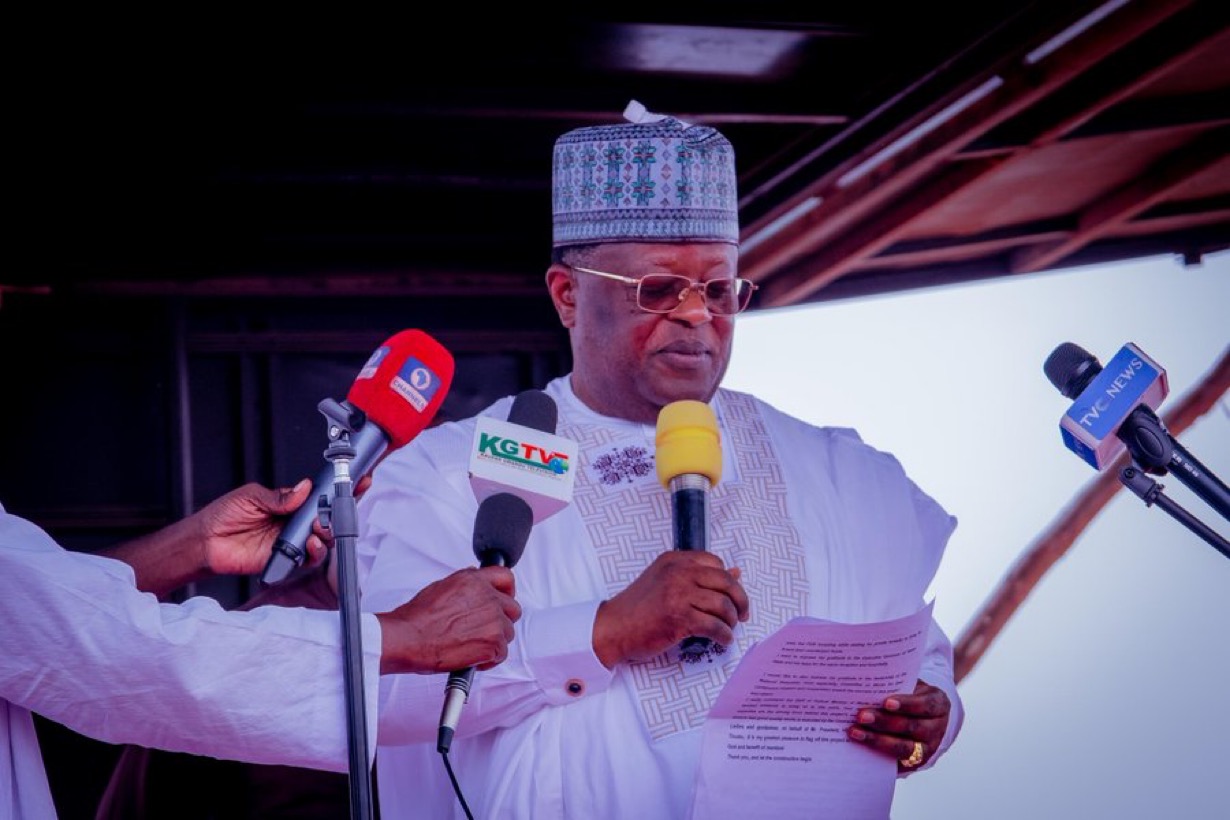Federal Government has launched the construction of Section I, Phase 1A of Sokoto-Badagry Superhighway, with Hitech Construction (Nig.) Ltd leading the project.
Gatekeepers News reports that the launching ceremony ceremony was held on Thursday, October 24, 2024, in Ilelah town, Sokoto State.
Minister of Works, David Umahi through a statement posted on the ministry’s official website noted that the 120-kilometer section will feature six lanes, with three on each side separated by landscaped medians, and constructed with rigid concrete pavement for enhanced durability and long-term value.
Umahi noted that Hitech was chosen because of its ability to meet deadlines and specifications, supported by modern equipment and skilled manpower.
The minister added that the company has successfully delivered similar projects, such as Apapa-Oshodi Expressway in Lagos, and is currently working on the Lagos-Calabar Coastal Highway.
The statement goes, “The Minister revealed that the choice of rigid pavement i.e. concrete in its design and construction is informed by longevity, while that of the contractor, Messrs Hitech Construction (Nig.) Ltd is premised on capacity to deliver according to specifications and on schedule due to availability of both brand new equipment and requisite manpower. It has done a similar pavement work on the Apapa – Oshodi Expressway in Lagos State and is doing same on the Lagos – Calabar Coastal Highway.”
Umahi noted that the project breaks a 48-year jinx, initially conceived during the administration of former President Shehu Shagari.
Director of Highways, Construction and Rehabilitation, Engr. Bakare Umar and Engr. Musa Seidu, representing Director of Highways, Bridges and Design during the ceremony, described the 1,068-kilometer Sokoto-Badagry Superhighway as a Trade, Transport, and Security (TTS) Greenfield corridor.
According to them; the highway will traverse multiple states, including Sokoto, Kebbi, Niger, Kwara, Oyo, and Ogun, and end in Lagos.
They emphasised that the project aims to reduce transportation costs, boost trade, enhance connectivity, and improve efficiency and economies of scale.
The ministry also noted that the highway will link existing inter-border towns and routes, facilitate quick access, and strengthen border settlements by supporting trade, security, and regional integration.







